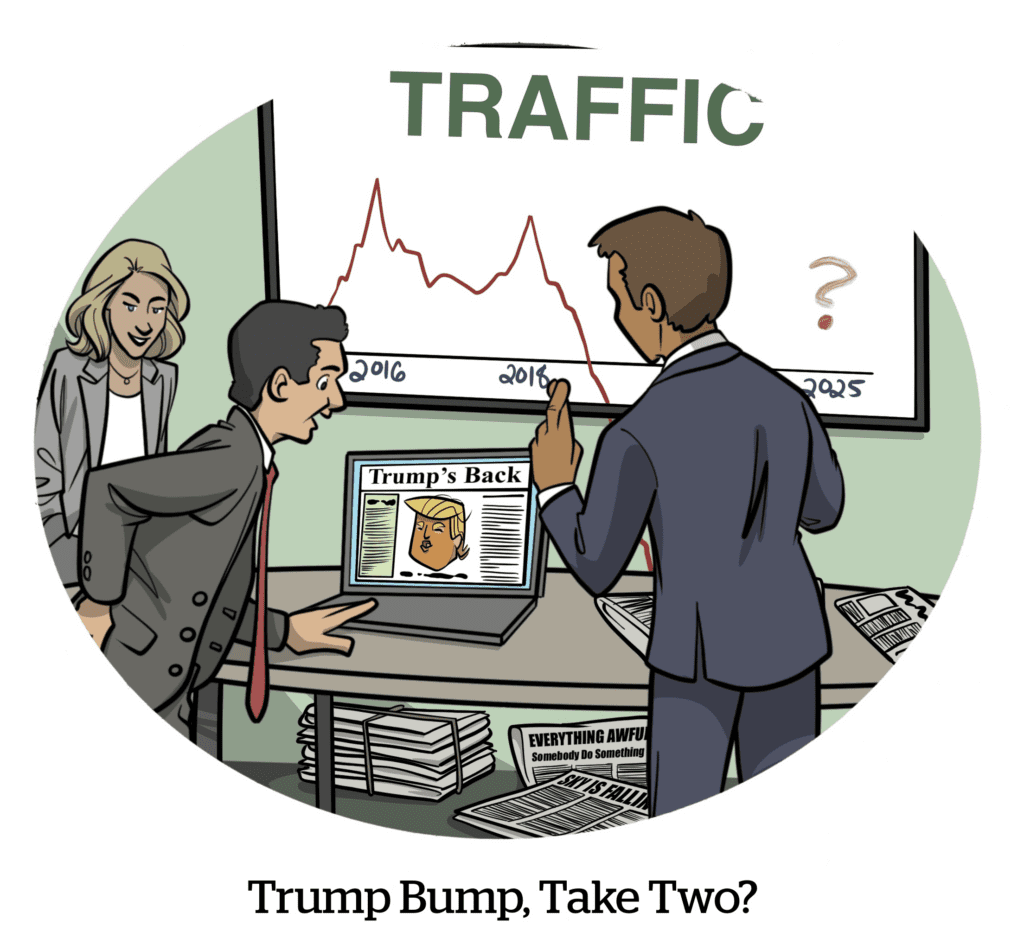What Lays In Store
The luxury makeup and hair care brands that have found the most success to date on TikTok are giving way, it seems, to legacy drugstore staples, Ad Age reports.
Alix Earle, an influencer known for promoting Olaplex and other high-end product lines, surprised audiences with a recent partnership with Pantene, for instance. Pantene worked with Earle to launch a limited-edition collection called “Unexpired Pantene,” which the brand said drove 46,000 sign-ups (a rare chance for Pantene to pick up some sweet, sweet first-party data).
Ad Age attributes the trend mostly to macroeconomics. “Literally every headline lately is like, ‘Are we in a recession?’” says Mae Karwowski, founder and CEO of influencer marketing agency Obviously.
But another factor could also be attribution. Many social-native cosmetic startups can prove the effect of their social media on DTC sales. Measuring the effect on in-store sales has historically been harder. But now, as influencer marketing measurement becomes better at tracking in-store sales – and not just DTC sales – big-name brands are ratcheting up their involvement and partnerships.
It was only last October that TikTok introduced its first official in-store measurement partnership with InMarket for store foot traffic and sales lift attribution.
Tariff Tiff
Just what marketers needed from the Trump tariff drama: more uncertainty.
On Wednesday, the US Court of International Trade blocked most of President Trump’s “Liberation Day” tariffs, CNBC reports. The court found that Trump overstepped his authority without Congressional approval.
In announcing the tariffs, Trump invoked emergency powers granted to the president under the International Emergency Economic Powers Act (IEEPA). But the court ruled that the IEEPA does not empower the president to impose universal trade duties.
The ruling covers the 10% baseline tariffs Trump set in April on imports from just about every nation. The federal trade court also ruled that specific tariffs imposed on Canada, Mexico and China are likewise invalid.
However, the court did not rule on industry-specific tariffs that the Trump administration imposed on the automobile, steel and aluminum industries, which did not rely on the IEEPA. Those tariffs remain in effect.
The tariffs were widely expected to be a drag on growth across several industries and on marketing across the board.
But the Trump administration has already appealed the decision and is publicly denying changes to US trade policy.
LLC (Large Language Confusions)
What’s in a name?
An awful lot, especially if you’re a large language model.
In a LinkedIn article, Kyle Shank, data science manager on Meta’s marketing team (and recently of Hershey’s), delves into what he dubs “the taxonomy problem” — or, the marketing world’s glaring inability to define and use standard terms.
Terms as oft-used and seemingly straightforward as a “campaign” and “impression” don’t have consistent definitions across companies. And as generative AI tools gain ubiquity, the lack of online ad taxonomies becomes a bigger problem.
If businesses want AI to independently develop campaigns and creatives, Shank writes, then they “need to be able to answer ‘what’s a campaign?’ and ‘what’s a creative?’ with clear language that is both machine-readable and human-sensical.”
Many marketers see “the taxonomy problem” as something for technical teams to deal with, but Shank emphasized that taxonomy is inherently part of strategy. It’s not IT’s fault when campaign planners name a creative file, like, “Q2_Campaign_Refresh_FINAL2” and “Final_v7_REALLY_FINAL.”
Simply put, he writes, “You can’t scale what you can’t define.”
But Wait! There’s More
LinkedIn is courting creators and advertisers with new content performance metrics. [Digiday]
Google’s AI Mode, the agentic search chatbot, has arrived. Proceed with caution. [NYT]
An Xbox and Microsoft vet is leading Amazon’s secretive new team, called ZeroOne, that plans to launch new consumer tech hardware. [CNBC]
How New Gen, a seed-stage agentic AI commerce marketing startup, pitched its value proposition. [Adweek]
Both parties in a copyright lawsuit between two Amazon influencers with strikingly similar aesthetics have asked for the case to be dismissed. [The Verge]
Discord is in the beta stages of sending its users on “Quests” to engage with advertising content in exchange for in-app currency. [The Verge]
President Trump reportedly turned down a $15 million offer from Paramount to settle his lawsuit against CBS, because he wants at least $25 million and a public apology. [WSJ]
Business Insider goes “all-in on AI” as it lays off 21% of staff, citing “extreme traffic drops outside of our control,” and it will shutter most of its ecommerce business “given its reliance on search,” according to a company memo. [Variety]
You’re Hired!
The 50-year-old TV ad agency InterMedia hires David Nyurenberg as SVP of digital. [Adweek]












